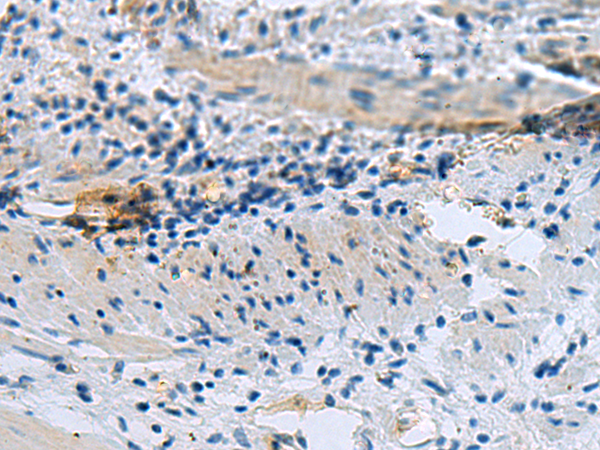
| WB | 咨询技术 | Human,Mouse,Rat |
| IF | 1/100-1/200 | Human,Mouse,Rat |
| IHC | 1/100-1/200 | Human,Mouse,Rat |
| ICC | 技术咨询 | Human,Mouse,Rat |
| FCM | 咨询技术 | Human,Mouse,Rat |
| Elisa | 咨询技术 | Human,Mouse,Rat |
| Aliases | GST1; ETF3A; eRF3a; 551G9.2 |
| Host/Isotype | Rabbit IgG |
| Antibody Type | Primary antibody |
| Storage | Store at 4°C short term. Aliquot and store at -20°C long term. Avoid freeze/thaw cycles. |
| Species Reactivity | Human, Mouse |
| Immunogen | Synthetic peptide of human GSPT1 |
| Formulation | Purified antibody in PBS with 0.05% sodium azide and 50% glycerol. |
+ +
以下是3篇涉及PRKCB抗体的研究文献摘要及作者信息,供参考:
---
1. **文献名称**: *"Protein kinase C beta modulates ligand-induced cell surface downregulation of the epidermal growth factor receptor"*
**作者**: Ueda et al.
**摘要**: 本研究利用PRKCB特异性抗体,揭示了PKCβ在表皮生长因子受体(EGFR)内吞和降解中的作用。实验表明,PKCβ通过磷酸化EGFR的特定残基,促进其泛素化和溶酶体降解,为靶向治疗提供了新思路。
---
2. **文献名称**: *"PKCβ regulates B cell survival by targeting Bcl-2 phosphorylation in chronic lymphocytic leukemia"*
**作者**: Barragan et al.
**摘要**: 通过PRKCB抗体检测慢性淋巴细胞白血病(CLL)患者样本,发现PKCβ过度激活导致Bcl-2蛋白异常磷酸化,抑制细胞凋亡。研究提示抑制PKCβ可能成为CLL的潜在治疗策略。
---
3. **文献名称**: *"Localization of protein kinase C beta in the Golgi complex regulates dendritic cell migration"*
**作者**: Lim et al.
**摘要**: 利用免疫荧光和PRKCB抗体,研究发现树突状细胞中PKCβ定位于高尔基体,调控细胞迁移相关蛋白分泌。敲除PKCβ会显著减弱细胞趋化能力,说明其在免疫应答中的关键作用。
---
如需具体文献链接或补充更多研究,可进一步说明方向(如疾病机制/实验技术)。
The protein kinase C beta (PRKCB) antibody is a crucial tool for studying the PRKCB protein, a member of the protein kinase C (PKC) family of serine/threonine kinases. PRKCB exists as two splice variants, PRKCB-I and PRKCB-II, which play distinct roles in cellular signaling. This enzyme is activated by diacylglycerol (DAG) and calcium, participating in pathways regulating cell proliferation, apoptosis, differentiation, and immune responses. Dysregulation of PRKCB has been linked to cancer, neurological disorders, and inflammatory diseases.
PRKCB antibodies are widely used in research to detect protein expression, localization, and post-translational modifications via techniques like Western blotting, immunohistochemistry, and immunofluorescence. They help investigate PRKCB's role in diseases; for example, PRKCB overexpression in tumors is associated with enhanced cell survival and chemotherapy resistance, while its inhibition shows therapeutic potential in diabetic complications and Alzheimer's disease.
Researchers must validate PRKCB antibodies for specificity due to high homology among PKC isoforms. Many antibodies distinguish between PRKCB and other PKC subtypes (e.g., PKCα or PKCγ) through epitope-specific targeting. Some commercial antibodies can differentiate between PRKCB-I and PRKCB-II isoforms. Proper controls, including knockout cell lines or siRNA knockdown, are essential for confirming antibody reliability in experimental models.
×